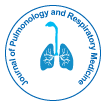हमारा समूह 1000 से अधिक वैज्ञानिक सोसायटी के सहयोग से हर साल संयुक्त राज्य अमेरिका, यूरोप और एशिया में 3000+ वैश्विक सम्मेलन श्रृंखला कार्यक्रम आयोजित करता है और 700+ ओपन एक्सेस जर्नल प्रकाशित करता है जिसमें 50000 से अधिक प्रतिष्ठित व्यक्तित्व, प्रतिष्ठित वैज्ञानिक संपादकीय बोर्ड के सदस्यों के रूप में शामिल होते हैं।
ओपन एक्सेस जर्नल्स को अधिक पाठक और उद्धरण मिल रहे हैं
700 जर्नल और 15,000,000 पाठक प्रत्येक जर्नल को 25,000+ पाठक मिल रहे हैं
में अनुक्रमित
- आईसीएमजेई
उपयोगी कड़ियां
एक्सेस जर्नल खोलें
इस पृष्ठ को साझा करें
अमूर्त
The Importance of Vaccines for Respiratory Health
Anang Endaryanto
Vaccines have been used for centuries to prevent infectious diseases and improve public health. One of the most significant benefits of vaccines is the prevention of respiratory diseases, which can cause serious illness and even death. In this article, we will discuss the importance of vaccines for respiratory health and how they work to protect us from respiratory illnesses. Respiratory illnesses are infections that affect the respiratory system, which includes the lungs, airways, and other structures involved in breathing. Respiratory diseases can be caused by bacteria, viruses, or other pathogens and can range from mild illnesses like the common cold to severe illnesses like pneumonia.
Vaccines work by stimulating the body's immune system to recognize and fight specific pathogens. When a vaccine is administered, it contains a small amount of a weakened or inactive form of the pathogen. The body's immune system then recognizes the pathogen and produces an immune response, which includes the production of antibodies that can recognize and fight the pathogen. The immune response generated by vaccines is similar to the response that occurs when the body is naturally exposed to a pathogen. However, vaccines are much safer than natural exposure because they contain only a small amount of the pathogen and cannot cause serious illness. There are several vaccines available that protect against respiratory illnesses. Some of the most common vaccines include the influenza vaccine, the pneumococcal vaccine, and the pertussis vaccine.
विषयानुसार पत्रिकाएँ
- अंक शास्त्र
- अभियांत्रिकी
- आनुवंशिकी एवं आण्विक जीवविज्ञान
- इम्यूनोलॉजी और माइक्रोबायोलॉजी
- औषधि विज्ञान
- कंप्यूटर विज्ञान
- कृषि और जलकृषि
- केमिकल इंजीनियरिंग
- चिकित्सीय विज्ञान
- जीव रसायन
- नर्सिंग एवं स्वास्थ्य देखभाल
- नैदानिक विज्ञान
- नैनो
- पदार्थ विज्ञान
- पर्यावरण विज्ञान
- पशु चिकित्सा विज्ञान
- पादप विज्ञान
- बायोमेडिकल साइंसेज
- भूविज्ञान और पृथ्वी विज्ञान
- भोजन एवं पोषण
- भौतिक विज्ञान
- रसायन विज्ञान
- व्यवसाय प्रबंधन
- सामाजिक एवं राजनीतिक विज्ञान
- सामान्य विज्ञान
- सूचना विज्ञान
क्लिनिकल एवं मेडिकल जर्नल
- आणविक जीव विज्ञान
- आनुवंशिकी
- इम्मुनोलोगि
- एनेस्थिसियोलॉजी
- कार्डियलजी
- कीटाणु-विज्ञान
- कैंसर विज्ञान
- गैस्ट्रोएंटरोलॉजी
- ज़हरज्ञान
- तंत्रिका-विज्ञान
- त्वचा विज्ञान
- दंत चिकित्सा
- दवा
- नर्सिंग
- नेत्र विज्ञान
- नेफ्रोलॉजी
- नैदानिक अनुसंधान
- पल्मोनोलॉजी
- प्रजनन चिकित्सा
- बच्चों की दवा करने की विद्या
- भौतिक चिकित्सा एवं पुनर्वास
- मधुमेह और एंडोक्राइनोलॉजी
- मनश्चिकित्सा
- रुधिर
- रेडियोलोजी
- शल्य चिकित्सा
- संक्रामक रोग
- स्वास्थ्य देखभाल
- हड्डी रोग

 English
English  Spanish
Spanish  Chinese
Chinese  Russian
Russian  German
German  French
French  Japanese
Japanese  Portuguese
Portuguese  Telugu
Telugu